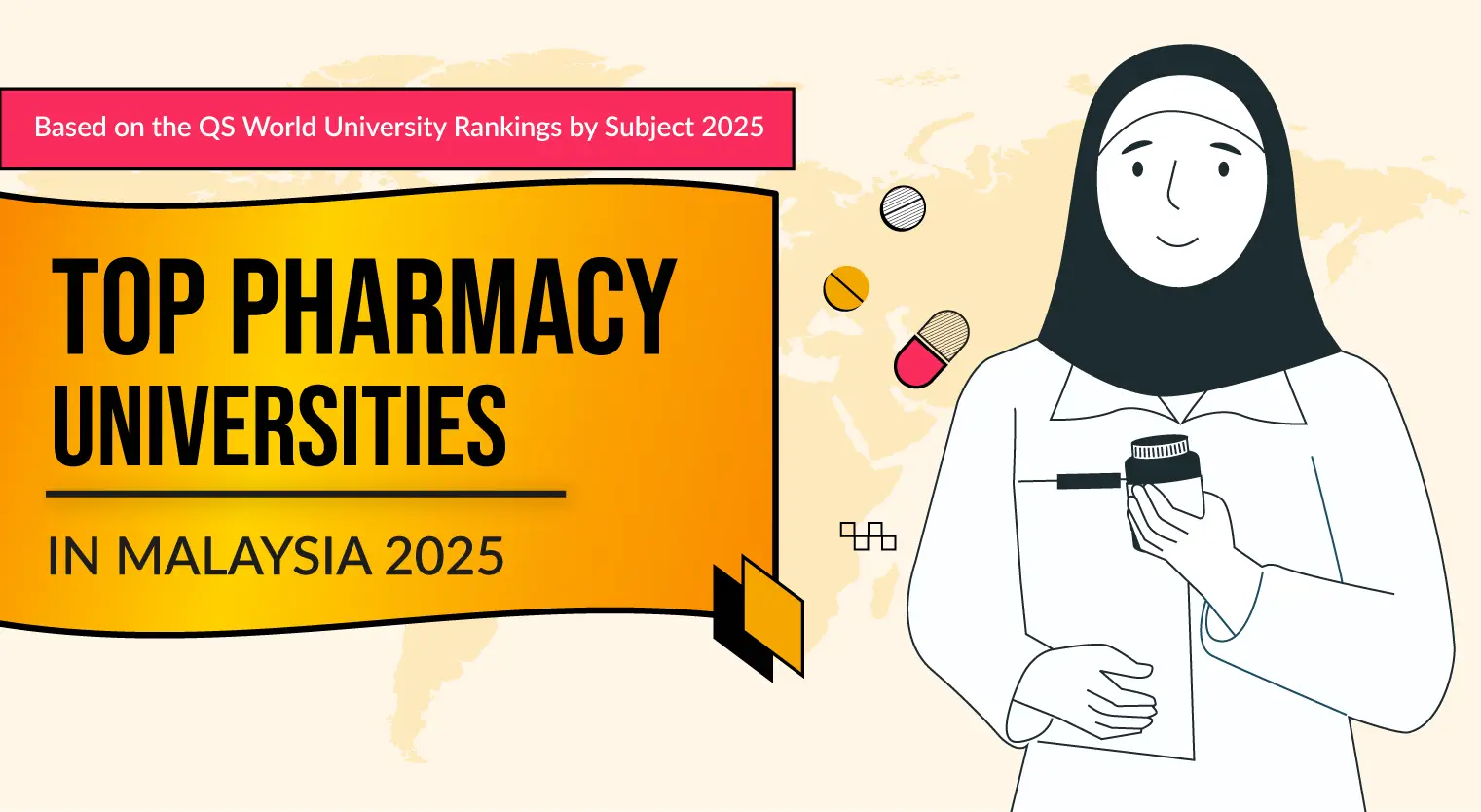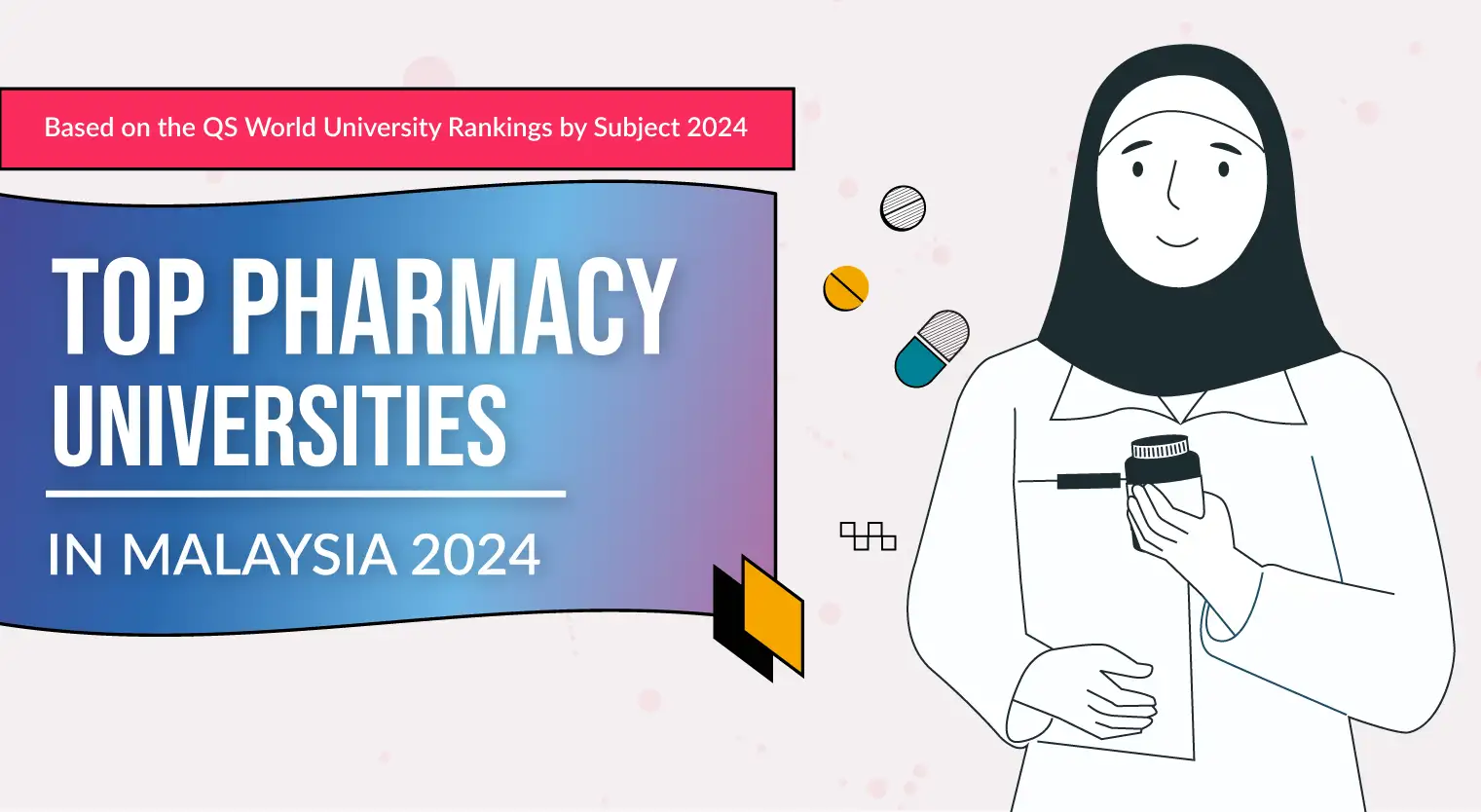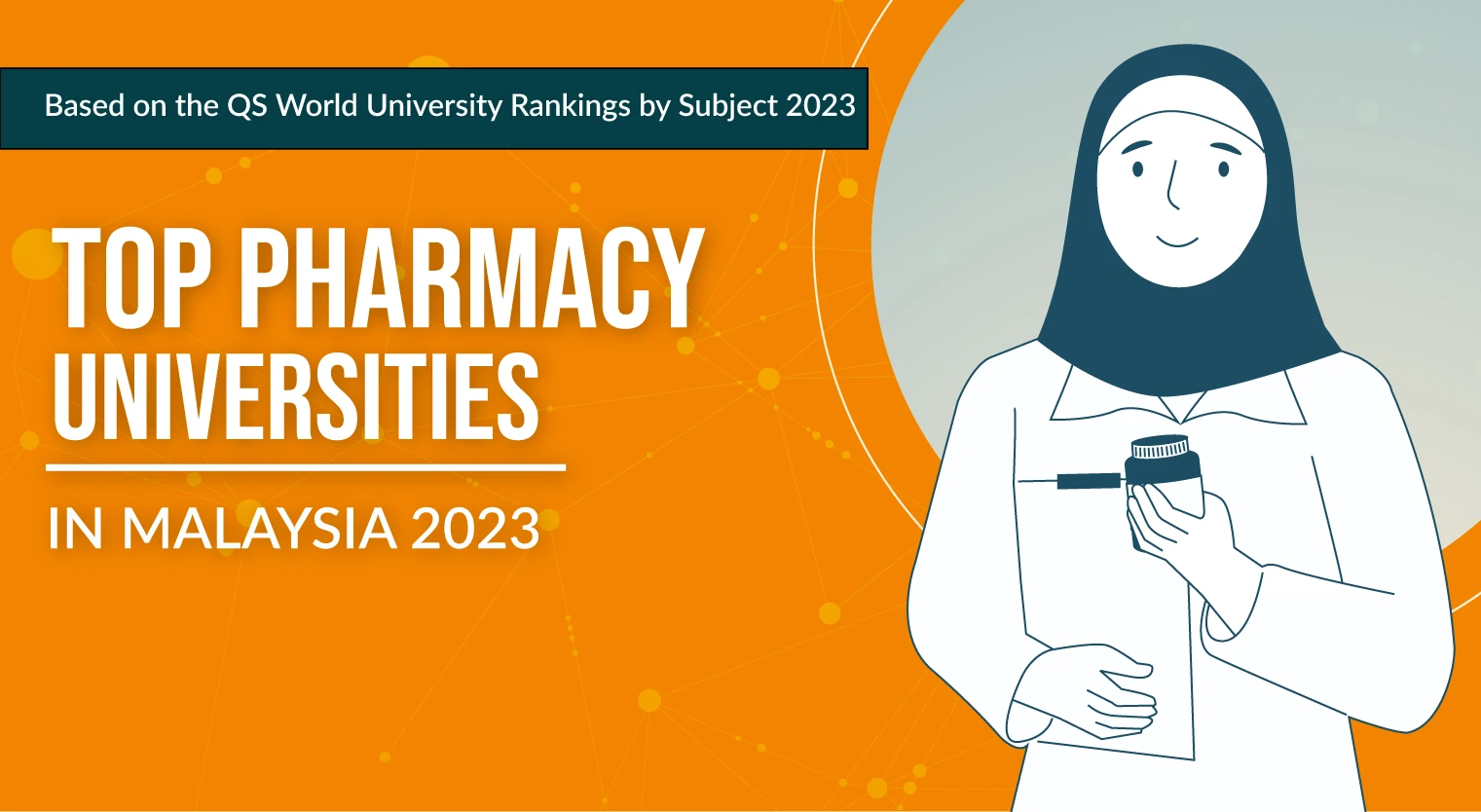5 Jobs You Can Pursue With a Pharmacy Degree
The pharmacy field offers a wide range of career opportunities. Find out what are some of the jobs you can pursue with a Pharmacy Degree here.
Updated 20 May 2022

With the healthcare sector in Malaysia boasting the 2nd highest starting salary for fresh grads, pharmacy can be an excellent career to pursue.
Wonder what your career options in pharmacy would be like? Here is a list of the main pharmacy-related jobs that will give you an idea of what's in store for you.
#1. Community/retail pharmacist

A community or retail pharmacist usually works in a pharmacy store (e.g. Guardian, Watsons, etc.) and is responsible for dispensing controlled medication according to legal and ethical guidelines. This is to ensure the general public receive the right medication as well as a safe dosage.
The job involves a range of responsibilities including:
- Selling and dispensing prescription medication to the public
- Selling over-the-counter medication
- Checking dosage and ensuring that medications are correctly labelled
- Supervising the preparation of certain medications
- Keeping a register of controlled drugs for legal and stock control purposes
- Liaising with doctors about prescriptions
- Recommending the most suitable medications for minor illnesses
Being a community pharmacist requires you to deal with customers on a daily basis and you’ll be heavily involved in maintaining and improving people’s health by advising them with relevant information. If you’re based in a large pharmacy, you may also work hand in hand with pharmacy technicians and sales assistants.
#2. Hospital/clinical pharmacist

A hospital or clinical pharmacist generally works in a hospital and is an expert on the use of different medications and their effects on the human body.
As a hospital pharmacist, you will work closely with doctors and medical professionals to advise on the type and dosage of medication and how it will be administered (e.g. tablet, injection, inhaler). You may also need to create tailor-made medications for individual patients.
Some of a hospital pharmacist’s tasks include:
- Checking prescriptions for errors and working closely with doctors to provide advice on the dosage of medication, administration techniques and possible drug interactions
- Creating customised medications based on a patient’s needs as prescribed by the doctor
- Participating in ward rounds to review patient medication profiles and consult with the doctor if there are any medication-related issues
- Liaising between the Inpatient Pharmacy (pharmacy within the hospital for inpatients, i.e. those staying in the hospital) and the wards to improve medication delivery
- Maintaining the quality and inventory of medications and pharmaceutical supplies
- Writing guidelines for drug use within the hospital and implementing them
Being a hospital pharmacist will see you working in one of the several pharmacies in the hospital, such as the Inpatient Pharmacy, Outpatient Pharmacy and Oncology Pharmacy, with regular patient contact. Laboratories and clean rooms (sterile rooms where you prepare pharmaceutical mixtures and drugs) will also be your workspace.
#3. Industrial pharmacist/research pharmacist
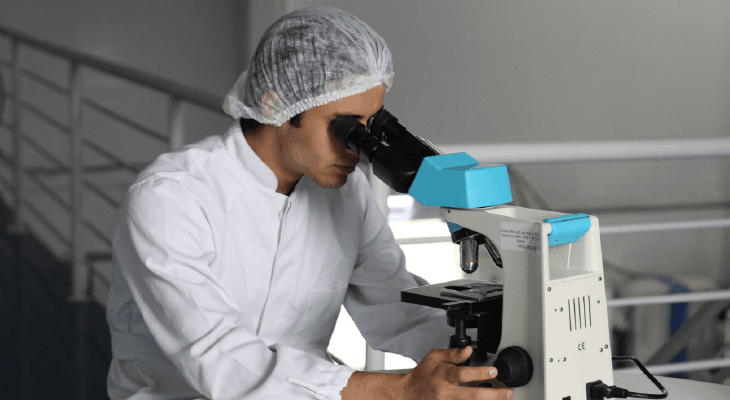
Do you want to create new medication that can heal and save the lives of millions of people around the world? Well, a career in industrial pharmacy may be your calling.
Industrial pharmacists conduct research experiments to design, develop and test new drugs and treatments. In addition to ensuring that the drugs are safe and effective, they also need to make sure that the new medications developed can be mass produced and are in compliance with government and industry regulations.
An industrial pharmacist’s duties include:
- Designing, planning and conducting controlled experiments to improve different drugs
- Conducting clinical trials to test the effectiveness of new drug formulations
- Liaising with regulatory authorities to ensure compliance with local, national and international regulations
As an industrial pharmacist, you will likely work in pharmaceutical companies that manufacture drugs, with the majority of your time being spent in labs doing research and development. There could also be research opportunities in universities as research pharmacists.
In Malaysia, jobs can be limited in this sector, although there is a growing focus in developing new formulations to improve drug delivery and enhance drug packaging methods as part of the government’s effort to transform Malaysia into a generic manufacturing hub.
To excel in this field, you may be required to have a postgraduate qualification to demonstrate that you have solid scientific knowledge and the relevant research skills.
Apply for university with EduAdvisor
Secure scholarships and more when you apply to any of our 100+ partner universities.
Start now#4. Regulatory pharmacist
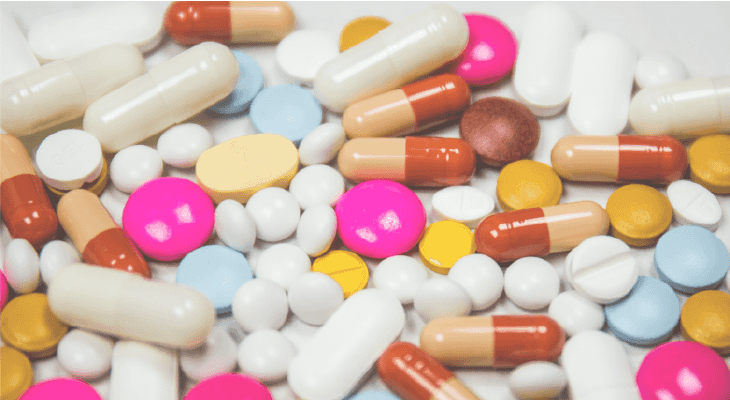
Regulatory pharmacists are responsible for obtaining approval from local regulatory authorities (e.g. Drug Control Authority Malaysia) to sell and market pharmaceutical products. They act as a link between pharmaceutical companies/distributors and local regulatory bodies to ensure the safety, quality and efficacy of drugs that are marketed and sold in Malaysia.
Some of the key responsibilities include:
- Preparing and submitting documents to obtain licensing and approval from regulatory bodies for pharmaceutical products and devices
- Maintaining the licenses of approved pharmaceutical products and devices
- Liaising and negotiating with regulatory bodies
- Ensuring the company complies with regulations set by regulatory authorities
- Working with sales and marketing on product education and development of marketing strategy to ensure compliance with regulations
Being a regulatory pharmacist will see you working in pharmaceutical companies and distributors. This job will involve a lot of details, where you will be scrutinising scientific and legal documents, some of which could be hundreds of pages long!

#5. Pharmaceutical sales executive

A pharmaceutical sales executive (also referred to as pharmaceutical sales representative or medical sales representative) promotes a pharmaceutical company's products and services to clients in the healthcare industry.
An understanding of pharmacology is useful, as you'll be describing certain medication's chemistry, method of action, side effects and potential interactions with other drugs. Most of your day-to-day tasks, however, will involve managing sales opportunities, conducting product presentations and increasing sales revenue.
The job involves responsibilities that include:
- Regularly meeting with doctors, hospitals and pharmacy store owners
- Conducting sales presentations and demonstrations to customers
- Executing marketing campaigns to market new medications
- Gathering market intelligence and using it to improve sales
- Identifying growth opportunities and effective sales strategies
Pharmaceutical sales executives often work for pharmaceutical and healthcare companies. The sales industry can sometimes be demanding and stressful, as it is often target-driven. However, if you are good at your job, you will be able to reap generous financial rewards.
And there you go — it’s clear to see that a Pharmacy Degree allows you the freedom to venture into various specialisations within the pharmacy field alone. If you think you’d enjoy most of the tasks or responsibilities we’ve mentioned, then this just may be the perfect study path for you!



